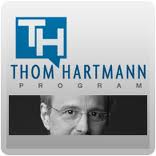 This week, Americans got a peak behind the curtain of the Trans Pacific Partnership, and what we found is frightening. On Thursday, Wikileaks published a complete draft of the “intellectual property rights” chapter of the TPP, and it poses a serious risk to free speech and information access. The document contains proposals that would change copyright and patent laws, so-called fair use practices, and the liabilities for alleged violations.
This week, Americans got a peak behind the curtain of the Trans Pacific Partnership, and what we found is frightening. On Thursday, Wikileaks published a complete draft of the “intellectual property rights” chapter of the TPP, and it poses a serious risk to free speech and information access. The document contains proposals that would change copyright and patent laws, so-called fair use practices, and the liabilities for alleged violations.
The provisions would stifle innovation, creativity, and information sharing, all under the guise of protecting intellectual property. And, many of the proposed changes are being suggested by US negotiators. Opposition to these restrictive policies is coming from other nations, like Canada, Chile, Malaysia, and New Zealand.
When our government has previously attempted to pass similar internet restrictions, like SOPA and PIPA, the overwhelming response from websites, online users, and other Americans forced our elected leaders to back down. That response is exactly why much of the TPP is being negotiated in secret, and it explains why US trade officials are asking to “fast-track” the agreement. Negotiators know that Americans would not support this deal, so officials want to push it through without even giving Congress the ability to amend it.
Unions, civil rights advocates, environmental activists, and many other groups are demanding that the details of the TPP are made public. Before this massive trade deal is signed, Americans have the right to know what it contains, and the right to demand that our elected leaders say “No” to the TPP.
A peak behind the TPP curtain.
By Thom Hartmann A...



